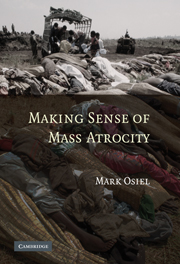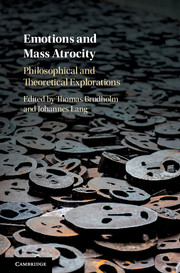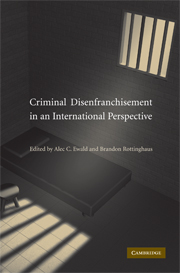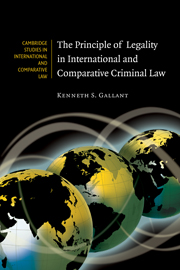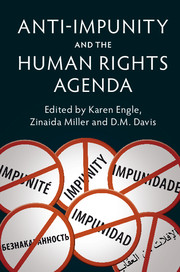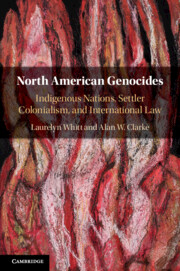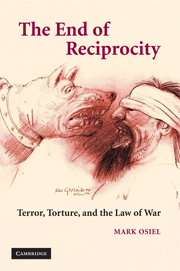Making Sense of Mass Atrocity
- Author: Mark Osiel, College of Law, University of Iowa and T. M. C. Asser Institute, The Hague
- Date Published: August 2011
- availability: Available
- format: Paperback
- isbn: 9781107403185
Paperback
Other available formats:
Hardback, eBook
Looking for an inspection copy?
This title is not currently available for inspection. However, if you are interested in the title for your course we can consider offering an inspection copy. To register your interest please contact [email protected] providing details of the course you are teaching.
-
Genocide, crimes against humanity, and the worst war crimes are possible only when the state or other organisations mobilise and co-ordinate the efforts of many people. Responsibility for mass atrocity is always widely shared, often by thousands. Yet criminal law, with its liberal underpinnings, prefers to blame particular individuals for isolated acts. Is such law, therefore, constitutionally unable to make any sense of the most catastrophic conflagrations of our time? Drawing on the experience of several prosecutions, this book both trenchantly diagnoses the law's limits at such times and offers a spirited defence of its moral and intellectual resources for meeting the vexing challenge of holding anyone criminally accountable for mass atrocity. Just as war criminals develop new methods of eluding law's historic grasp, so criminal law flexibly devises novel responses to their stratagems. Mark Osiel examines several such legal innovations in international jurisprudence and proposes still others.
Read more- Provides suggestions on how to convict heads of state and military leaders for mass atrocities, especially how to link the plans of the big fish to the acts of the small fry
- Demonstrates the problems that the law faces in trying to pinpoint blame for mass atrocity when responsibility is widely shared among hundreds or thousands of people, as in authoritarian regimes or wars
- Shows how the practice of international criminal law is taking shape as a professional field with internal norms and practices very different from prosecution at the national level in post-conflict societies, where trials for mass atrocity follow a very different course
Reviews & endorsements
Review of the hardback: 'The law's confrontation with mass evil is the urgent focus of Mark Osiel's engrossing, compelling, and wholly original book. Ranging from Dachau to Darfur, Cambodia and South America to the former Yugoslavia, Osiel weaves together deep understanding of how violence becomes organized, the cloudy relationships between leaders and others, the role of emerging networks of violence, and the law's difficulties in coming to grips with assigning responsibility for mass evil. Academically original, yet written in a lively, accessible voice, this book is essential reading on one of the central moral, political, and legal struggles of our time.' Richard H. Pildes, Sudler Family Professor of Constitutional Law, Co-Director, NYU Center on Law and Security, NYU School of Law
See more reviewsReview of the hardback: 'This focus of this book is on two central questions: how does mass atrocity happen and how should the criminal law respond. By addressing them not only from a legal perspective, but also drawing from a vast literature outside the law … Mark Osiel engages the reader into a much needed 'thinking outside the box' exercise, inviting international criminal lawyers to leave the 'professorial echo chamber' and to have a fresh look at the social realities of mass atrocity and the legal theories that try to capture it. The result is a refreshing analysis of these theories as they emerge from the jurisprudence of the ad hoc tribunals and the ICC … Osiel paints a fascinating picture of the political context in which legal choices between these theories are made, exploring the conflicting incentives of international and national prosecutors in post-conflict societies and explaining why national and international courts often treat similarly situated offenders differently. He offers some interesting new possibilities and solutions, and suggests ways to overcome bystander indifference in situations where mass atrocities occur … invaluable reading …' Christine Van den Wyngaert, Judge, International Criminal Court
Review of the hardback: 'Mark Osiel continues his unique blend of close legal reasoning, a profound sense of the worst potentials lurking in human nature, and a deep appreciation of the practical … At the root of the work is a deeply moral motive – to find effective means of restraining and punishing the worst kinds of atrocities. What most distinguishes Osiel's contribution is his avoidance of legal or moral idealism. Exploring the scope and limits of the law's power over such behavior, Osiel offers sage, judicious, balanced, and realistic proposals for finding our way toward a more law-governed international community.' Martin L. Cook, Admiral James Bon Stockdale Chair of Professional Military Ethics, U.S. Naval War College
Review of the hardback: 'In this provocative, seminal work, Professor Osiel masterfully explores innovative legal vehicles to justly hold accountable individual and group perpetrators of mass atrocity … He brings to bear ground-breaking, and in some cases, somewhat controversial legal theories and tactics to attach proper criminal liability to those culpable in mass killings. A bold, highly instructive, and invaluable contribution to transnational humanitarian law.' Colonel Joseph P. 'Dutch' Bialke, U.S. Air Force Judge Advocate
Customer reviews
Not yet reviewed
Be the first to review
Review was not posted due to profanity
×Product details
- Date Published: August 2011
- format: Paperback
- isbn: 9781107403185
- length: 276 pages
- dimensions: 229 x 152 x 15 mm
- weight: 0.37kg
- availability: Available
Table of Contents
1. The challenge of prosecuting mass atrocity
Part I. Legal Rules and their Problems:
2. The responsibility of superiors
3. Participating in a criminal enterprise
4. Defining the criminal enterprise
Part II. The Political Context of Legal Choice:
5. Must national prosecutions serve global concerns?
6. The conflicting incentives of national and international prosecutors
Part III. New Possibilities and Solutions:
7. The bureaucracy of murder
8. Collective sanctions for collective wrong
9. The collective responsibility of military officers
10. Being economical with amnesty.
Sorry, this resource is locked
Please register or sign in to request access. If you are having problems accessing these resources please email [email protected]
Register Sign in» Proceed
You are now leaving the Cambridge University Press website. Your eBook purchase and download will be completed by our partner www.ebooks.com. Please see the permission section of the www.ebooks.com catalogue page for details of the print & copy limits on our eBooks.
Continue ×Are you sure you want to delete your account?
This cannot be undone.
Thank you for your feedback which will help us improve our service.
If you requested a response, we will make sure to get back to you shortly.
×
